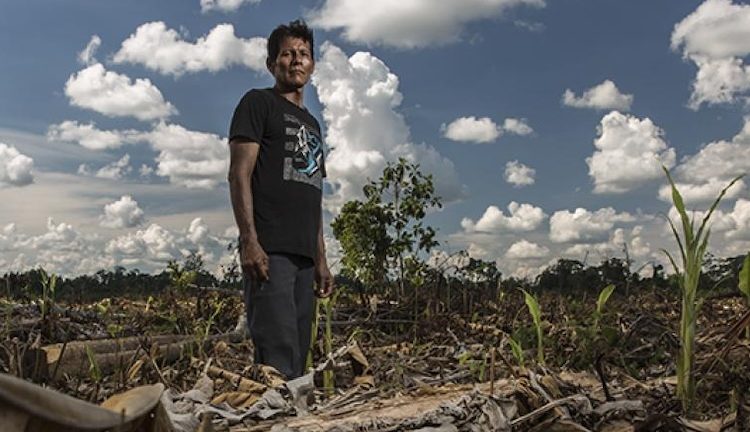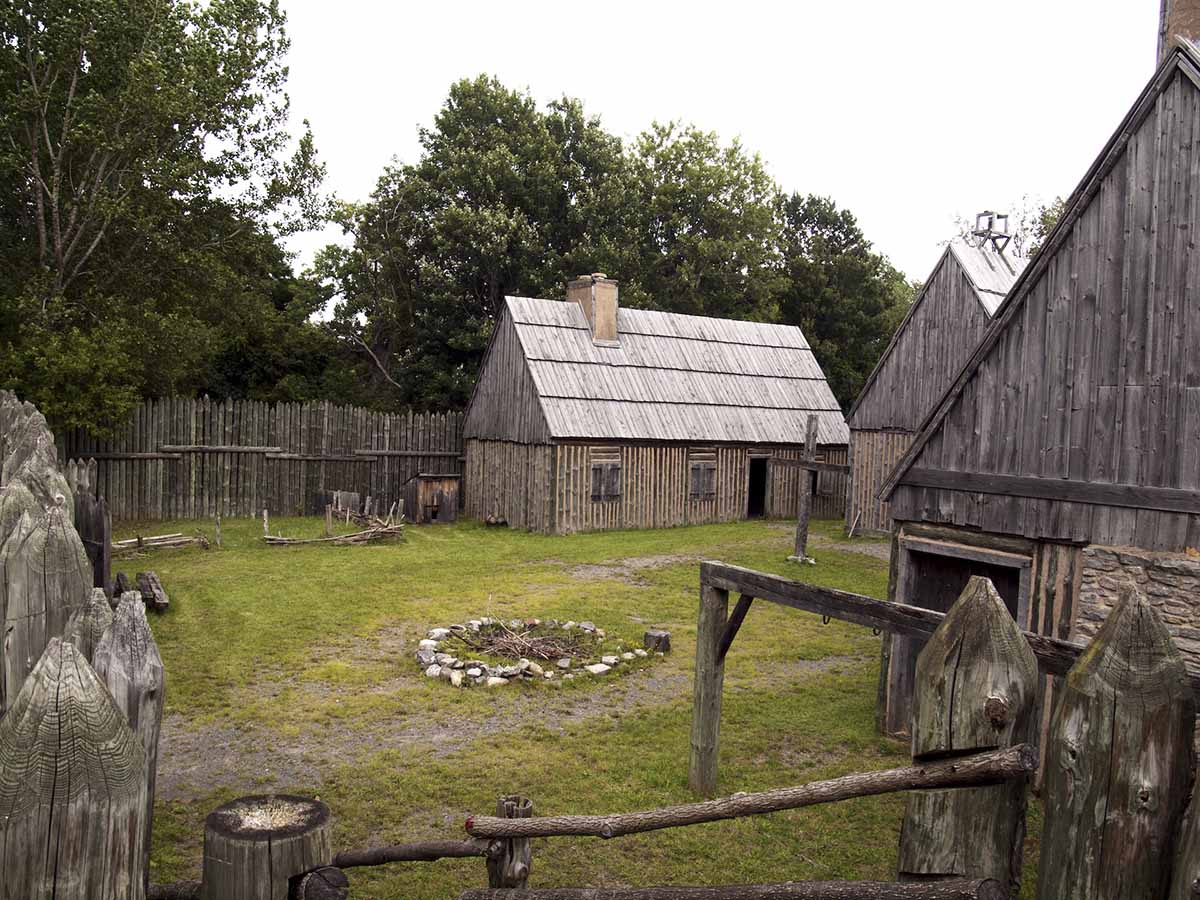Renounced by the Vatican, Yet the Repressive Force of 15th Century Persists
By William D. Sunderlin, Ph.D., and Robert J. Miller, J.D.
ALBANY, New York | PHOENIX, Arizona | 16 April 2024 (IDN) &emdash; It seems ridiculous that a repudiated Catholic doctrine dating back to the 15th century should have legal standing anywhere in the world today. Yet the Onondaga, an Indigenous nation located in Central New York, have to argue for their land rights in front of the Inter-American Commission on Human Rights because of centuries of United States case law that relies on the Doctrine of Discovery, renounced by Pope Francis one year ago.
Indigenous communities traditionally hold and use approximately one-half of the world’s land. Indigenous and community land rights are not recognized for much of this land—in 49 countries with detailed statistics, at least 21.1% of all land should be recognized as theirs but isn’t. And that is where the Doctrine of Discovery comes into play.
The Doctrine is a 15th-century edict that helped lay the foundation for European imperialism, colonization, and seizure of the lands and resources of Indigenous communities around the globe. The Doctrine, issued as a series of papal bulls by the Catholic Church, declared that Christian explorers had the right to lay claim to lands they “discovered,” even if Indigenous Peoples already populated them. Such lands were to be considered “empty” and therefore available for appropriation if inhabited by “heathens, pagans, and infidels.”
These principles became embedded in the ideological, political, cultural, and legal frameworks not just of the European colonizing countries but also of the new countries that were formed centuries later.
The attempt to right past wrongs
To its credit, on March 30, 2023, the Vatican renounced the Doctrine. The attempt to right past wrongs is justified not just for moral reasons, but also because it bears heavily on efforts to avert the worst impacts of climate change. Indigenous land rights have been recognized by the Intergovernmental Panel on Climate Change and in numerous scientific studies as a bulwark against tropical deforestation and biodiversity extinction.
Pope Francis’s courage in annulling the Doctrine of Discovery should be applauded and celebrated; it is a breakthrough as we contend with the damage wrought by these papal bulls and the colonial legacies across the centuries. Nevertheless, bold as this decision might have been, the principles promoted by the Doctrine are still embedded in national laws and court decisions, and those laws and cases pose formidable barriers to righting the wrongs of the past.
For example, the first Congress of the United States implemented the Doctrine of Discovery on July 22, 1790, to enact a law, still in effect to this day, that claimed U.S. ownership rights over the lands of Native American Nations. The U.S. Supreme Court completely adopted this international legal principle of colonialism in Johnson v. McIntosh in 1823.
The Doctrine has served as a legal justification not only for seizing Native American lands, but also for blocking subsequent Native Nations’ efforts to reclaim their lands. In 2005, in a Supreme Court decision authored by Justice Ruth Bader Ginsburg, the Doctrine was invoked as a justification for denying the efforts of the Oneida Nation and its people to reclaim a portion of their sovereignty and lands, and in 2010 a federal judge relied on the Oneida ruling to dismiss the Onondaga Nation’s land rights action.
The repressive force of the 15th-century doctrine
The Doctrine continues to wield its repressive force worldwide, in the laws of ex-colonies such as Australia, Canada, New Zealand, Chile, Mexico, Kenya, Tanzania, and Uganda in East Africa.
In Brazil, the issue of the return of lands to Indigenous communities is every bit as troubling, relevant, and urgent as in other countries. While there have been notable advancements in formalization of Indigenous land rights in recent decades under Brazil’s 1988 Constitution, these gains have been fragile and insecure. Brazil’s constitution incorporates many of the hallmark elements of the Doctrine of Discovery that the Onondaga Nation confronts in the U.S. One critical legacy of the Doctrine of Discovery in Brazilian law precludes sub-soil ownership, meaning the state can grant exploration and mining rights on Indigenous lands.
Brazil’s current President Lula Da Silva has moved aggressively to affirm Indigenous land rights and resume a long-stalled process of demarcation of Indigenous lands as he attempts to repair the damages wrought by his predecessor Jair Bolsonaro. If the principles of the Doctrine were not embedded in Brazilian law, jurisprudence, and culture, Indigenous land rights in Brazil would surely rest on a more stable and durable foundation.
Although the Doctrine of Discovery has been officially repealed at its source, it will continue to block justice for Indigenous Peoples unless all its legal manifestations are eradicated.
On the anniversary of the March 2023 decision, Pope Francis and the Vatican should follow up with letters directed at national leaders around the world requesting that they purge their laws, regulations, and policies of all influences of the Doctrine.
National governments should undertake these steps in full consultation with Indigenous communities. At the same time, national legal structures should be reviewed to ensure they comply with the provisions of the 2007 United Nations Declaration on the Rights of Indigenous Peoples.
Lastly, Pope Francis should continue his efforts to eradicate the Doctrine, incorporating this work into his efforts on climate change, one of his top priorities. In 2015, Pope Francis issued Laudato Si, his encyclical on the urgent need to address our global ecological crisis. It is impossible to fulfill the goals of Laudato Si without following up on last year’s renunciation with the next step: complete eradication of the principles related to the Doctrine from national laws.
Authors
Robert J. Miller, co-author of “Discovering Indigenous Lands: The Doctrine of Discovery in the English Colonies,” is a professor and the Willard H. Pedrick Distinguished Research Scholar at the Sandra Day O’Connor College of Law at Arizona State University.
William D. Sunderlin, Ph.D., author of “Ideology Social Theory and the Environment,”is a Fellow with the Rights and Resources Initiative and a Senior Associate with the Center for International Forestry Research and World Agroforestry (CIFOR-ICRAF). [IDN-InDepthNews]
Credits
Photo: The indigenous Shipibo community of Santa Clara de Uchunya, in the Peruvian Amazon, is facing invasion of its ancestral lands by corporate oil palm plantations and land traffickers. 7,000 hectares of forest have been destroyed. Credit: Diego Pérez/Oxfam
IDN is the flagship agency of the Non-profit International Press Syndicate.
Publication Notice
This article is originally published on In Depth News
SUGGESTED CITATION
Robert J. Miller, "Renounced by the Vatican, Yet the Repressive Force of 15th Century Persists," Doctrine of Discovery Project (19 April 2024), https://doctrineofdiscovery.org/blog/doctrine-discovery-renouced-yet-still-pervasive/.
Download citation formats:
Share on
X Facebook LinkedIn BlueskyDonate today!
Open Access educational resources cost money to produce. Please join the growing number of people supporting The Doctrine of Discovery so we can sustain this work. Please give today.


